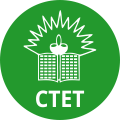Study Materials
Select Exam Category
- SSC & Railway
- Bank & Insurance▾
- PO, Clerk, SO, Insurance
- Regulatory Bodies
- ESE/GATE/PSUs▾
- GATE & PSU CS
- ESE & GATE EE
- ESE & GATE EC
- ESE & GATE ME
- ESE & GATE CE
- IAS▾
- IAS
- IAS Hindi
- CAT & MBA
- Other Management Entrance Tests
- CTET & Teaching Exams▾
- CTET & State TET Exams
- PRT, TGT & PGT Exams
- UGC NET & SET
- CSIR NET & SET
- CLAT UG
- Other Law Entrance Tests
- AE & JE Exams
- Defence Exams▾
- CDS & Defence
- NDA
- SSB Interview
- State PSC Exams▾
- BPSC
- MPPSC
- UPPSC



